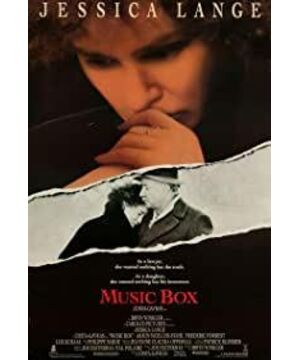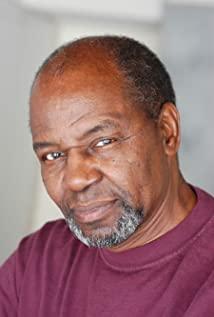"Music Box" is a masterpiece by the Greek-French director Costa Gavras, who is famous for his political films. In this film, he again convincingly shows the sharpness and depth of his revealing problems, and also shows his excellent ability to control the language of the film.
The frame of the film is a story about tracking down Nazi war criminals. Gavras here makes no secret of his usual political perspective. After World War II, many sinful Nazi war criminals fled abroad for refuge. They kept their names incognito and lived a comfortable and comfortable life. Victims of countless wars and people of justice will never give up their pursuit because their crimes have become history, and those war criminals will not be rehabilitated just because they are lucky enough to escape the punishment of the law. In the film, the people represented by Booker (including Anne) track the fugitive war criminals and Laszlo's visceral hatred of the Jews, and his teaching his grandson that the so-called massacre of the Jews is a lie all show that 40 The battle between evil and justice many years ago did not dissipate with the smoke of World War II. This may be an important basis for Gavras to choose this subject and to be successful.
In the film, Gavras fully shows his concern for this reality. Witness after witness in the film relives the heinous atrocities of the Nazi past, but Gafras does not use any flashbacks to recreate the scene here - to avoid making the film a mere Remember past stories. Rather, around the main story thread that Laszlo exposed and defended, what is even more shocking is a kind of today's reality in which Gavras seems casually interspersed: from that also hidden in America, once Zordan, Mishka's former accomplice, who constantly blackmails "Lazlo", has many friends and supporters around Laszlo, from the photo of him in Nazi uniform that still hangs in Zordan's sister's house to the The mysterious man in Budapest that Annie provided information, it is not difficult for us to feel the existence of the Nazi haze in the past. The reason for this existence is clearly a background of extremely complex international political, economic and ethnic conflicts. Gavras once said: "As far as I know, many war criminals are now living in seclusion in South America and other places, while the US government turns a blind eye in exchange for industrial and scientific interests... Even these war criminals will be used as spies to combat international communist activities." In the film, Gafras shows a keenness and depth commensurate with his status as a famous political film director. It is this complex background of international conflict that is used in the film's basic method of defense by Laszlo and Annie to win sympathy by portraying the pursuit of war criminals as a conspiracy of a communist regime.
However, Gavras did not confine his perspective to a purely political or war criminal tracking story, he paid more attention to a story about people, the good and evil, hatred and hatred in human nature. Existence and conflict with love. This is also a question he has been exploring in his previous political films. He once said: "The potential for human violence is one of the themes that I keep repeating... This is not a film about revenge, but a film about memory. I don't think there is a need to track adults and punish them. They, it doesn't seem like it would make much sense to do that now, they should have been punished years ago. What's important is to find out how, as human beings, they can commit such crimes." Laszlo in the film is the embodiment of the Gabriel was an important figure in the focus of human nature. It is hard to imagine how a father who is full of love for his children could commit those heinous crimes against mankind? —This is one of the reasons that led Annie to believe that her father was innocent in the first place. In the film, Gavras shows us the chilling nature of hatred and violence in this human being. Laszlo, who looks no different from ordinary people, is not only the demon of the past, but also the "tyrant" of today. He has absolutely no remorse for what he did in the past; he taught his grandson to punch his fellow disrespectful; he leaves an anguished Annie in the back of the film in which he confronts a crowd of demonstrators with a wooden club and in the back of the film. In the scene of teaching his grandson to ride a horse, Gavras once again gave us the image of a former Nazi. Evidently, neither the passage of time, the lessons of defeat, nor the just punishments that have been and are to come will be enough to make those Mishka-Lazlos give up their cherished hatred of their human companions.
As the opposite of this violent nature, Gavras also conducts a touching discussion of the good in human nature—the dignity of the pursuit of justice and its higher form—love, and its focus is on the film’s On the female lawyer Anne. Annie is a deeply positive character created by Gavras in the film. She defended her Nazi father, but she was innocent, she was only deceived. When she found out that her father was the criminal with Jewish blood on her hands, she chose to uphold justice without hesitation—making the evidence of her father's crime public. In his past political films, Gavras often portrays us as ordinary people with dignity. Although they are inconspicuous little people, in order to maintain justice, they are not afraid of power. Bravely expose the dark side of violence. Such as the journalist who has the courage to reveal the truth in his masterpiece "Z". Therefore, his films are not only politically revealing, but also full of the brilliance of human dignity. In Anne, he further extended this celebration of human dignity to the discussion of the higher good in human nature-love. Anne's standing up for Laszlo's defense was from the outset beyond the purview of a professional lawyer, and was associated with an emotional entanglement. Her defense for her father is not only to fulfill the duties of a lawyer, but also out of the affection and love between father and daughter. From the cemetery to the family, Gavras convincingly presents a father-daughter relationship, although he does not focus much on the family, thus adding an emotional dimension to the themes of politics and reality at the beginning of the film. dimension, which makes the film a love story at the same time. It is out of this father's emotion that Annie firmly believes that her father is innocent at first. However, when she discovered the truth, she finally made a choice to uphold justice, rather an extension of the theme of affection and love. Included in this choice is a woman's recompense for her love for her fellow mutilated, and a mother's responsibility to protect her offspring from the evils of the Nazi past; as a daughter, she also pays her father's final repayment to him The blood debts owed. In the film, Gavras not only shows the kind of touching affection and love in the shrewd and strong Annie starting from the father-daughter relationship, but also continuously expands and extends this love. In court, her shrewd defense made the facts "stretched," but when she faced the testimony of the ravaged woman, a love deeper than father-daughter relationship clearly prevailed. At the end of the film, when Annie made public the evidence of her father's crime, the scene where she hugged her son tightly was no doubt The theme of love culminates in the film, which shows the highest level of love a mother can show. In this regard, it is easy to relate it to the strong humanitarian tendencies that always exist in Gafras' films.
In addition to the shocking content that the film shows us, in its expression, Gavras is also worthy of being a master who can master the language of film art. In this film, which is mainly based on indoor dramas and has very limited scenes, through the organization of narrative, the scheduling of scenes and shots, and the use of light and shadow, he combines the tension of dramatic conflicts, realistic scenes and the relationship between characters and the characters. The revealing of its inner world blends beautifully together and consistently manages to "manipulate" the development of the story. Although the clues of the film are not complicated, Gafras has successfully established a difficult and gradual process of "discovering" the truth. From the progressive revelations of the atrocities committed against Mishka and her associates in court to Annie finding herself deceived by the only man in her life she could trust and rely on, the film is filled with tension and suspense throughout. . Whether in scenes full of intense conflict or routine, Gavras is very good at discovering the gradually developed and changed relationships and inner worlds of the characters in the play. In addition, the excellent performance of Jessica Lange, who plays the female lawyer Anne in the film, is also an important reason for the success of the film. The 40-year-old American actress Jessica Lange began to gain widespread acclaim in the early 1980s with "Frances." In this film, her simple and natural performance deeply and movingly portrays Annie, who is thin on the outside, full of contradictions and pains on the inside, but full of firm character and courage. She also won the 62nd Academy Award for Best Actress. nomination.
The director of the film, Constantine Costa-Gavras, was born in Athens in 1933. He is famous in the international film circle for his films with political themes. Most of his political films are based on real events and are full of strong political exposure. Color and humanitarian tendencies, representative works include "Z", "Martial Law", "Special Court", "Disappearance" and this film.
View more about Music Box reviews











